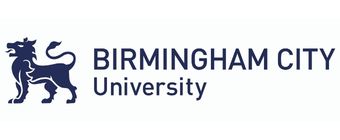The School welcomes enquiries relating to the hardware of telecommunications, computer networks, games technology, electronic engineering and software engineering. Areas of research in which staff are currently active include gaming, e-business, home automation, learning technologies, intelligent systems, security and forensics, robotics and cloud computing.
WHAT'S COVERED IN THIS COURSE?
A PhD, “Doctor of Philosophy”, is the highest-level qualification, based on individual and detailed research, resulting in a thesis of about 80,000 words.
The School offers specialist supervision if you wish to pursue research programmes for the award of a PhD. You may undertake your research either full-time or part-time. If you are accepted for PhD research you will be assigned to a Director of Studies (your main supervisor) and at least one-second supervisor. There will be a programme of training workshops and seminars to support you.
As a research student, you will be exposed to a versatile range of academics. You will be encouraged to take part in various activities, and seminars, to publish in collaboration with your supervisors and to take part in research conferences nationally and (where possible) internationally. The Faculty as a whole also has a growing population of research students who organise social and academic events.














